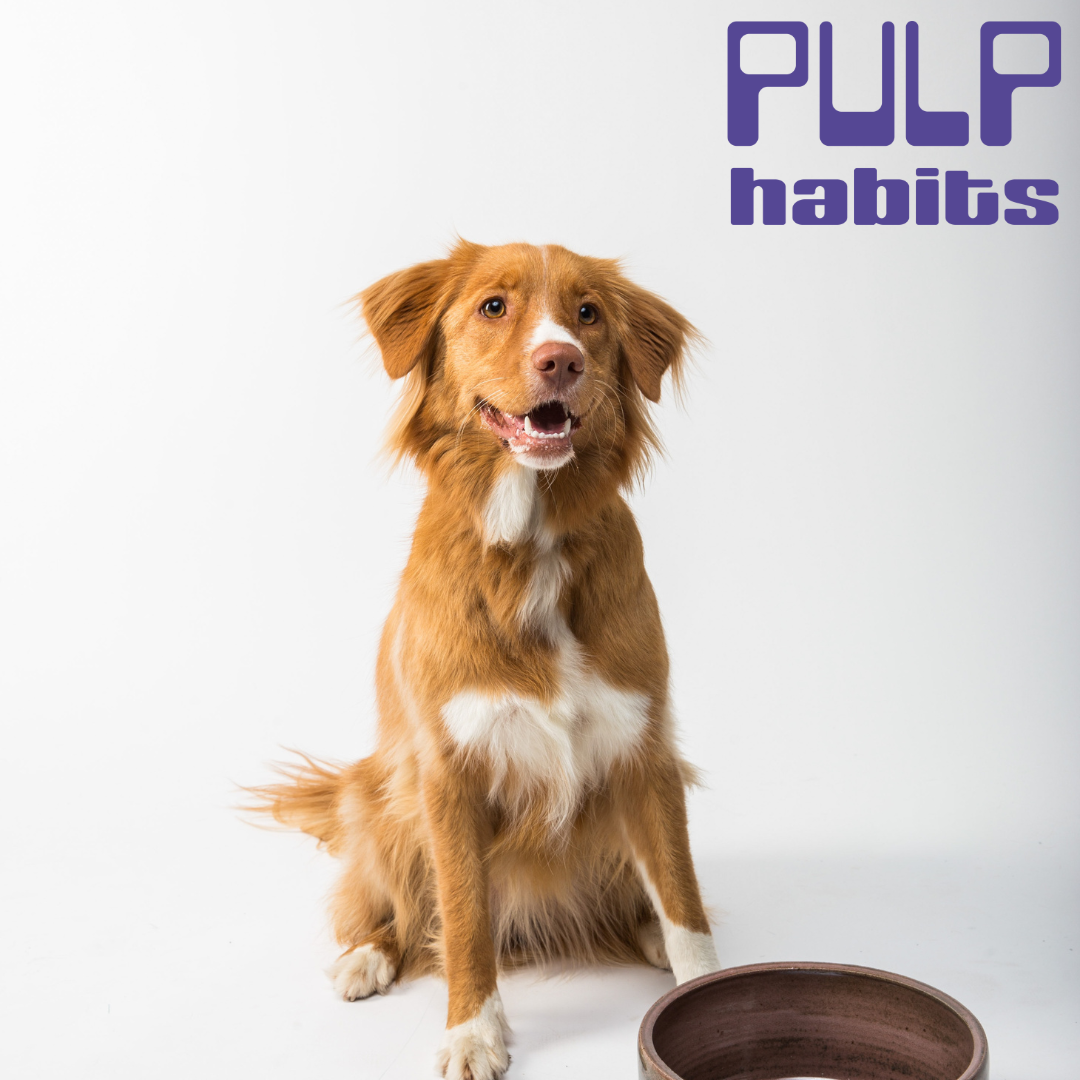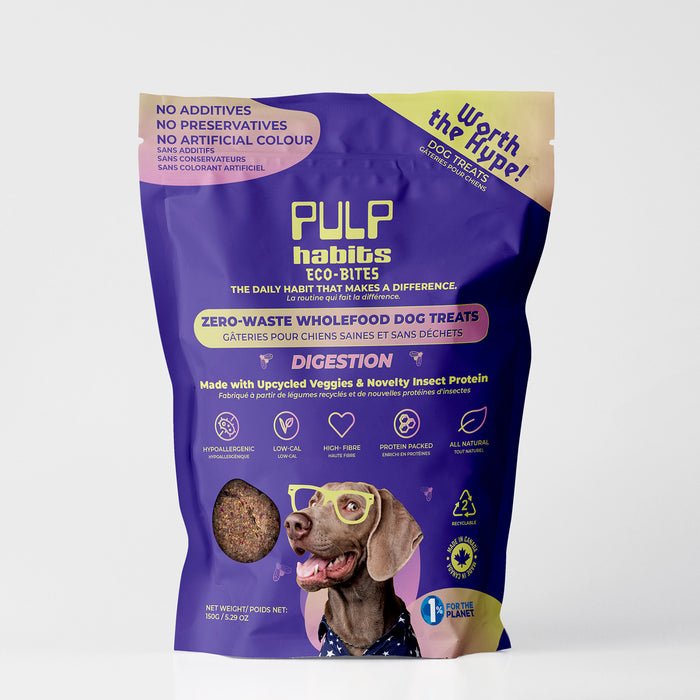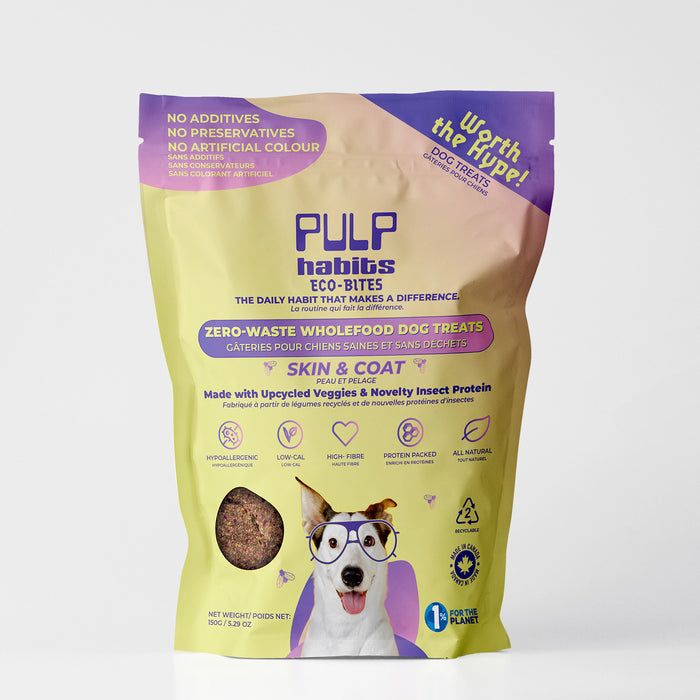
Sniffing Out Food Allergies in Your Pup
Woof, woof, fellow dog lovers! If you've ever noticed your furry friend scratching their ears, rubbing their face on the carpet, or experiencing tummy troubles, they might just be telling you something important—food allergies! Just like us humans, our four-legged companions can have dietary sensitivities that require our attention. In this guide, we'll help you unleash your inner detective and learn how to tell if your dog has a food allergy. Get ready to embark on a quirky and informative adventure with your pup!
1. Sherlocking the Symptoms:
Detecting food allergies in your dog starts with being an astute observer. Watch out for signs like excessive itching, redness, hair loss, recurrent ear infections, gastrointestinal upset, or even unusual behaviour. These are clues that something might not agree with your pup's tummy.
2. The Notorious Culprits:
Just like a classic whodunit mystery, certain food ingredients often play the role of the sneaky culprits behind food allergies. Common suspects include beef, chicken, dairy, wheat, soy, and corn. Remember, each dog is unique, so it's essential to pay attention to your pup's individual reactions.
3. Unmasking the Allergen:
To get to the bottom of the case, it's time to bring out your inner detective skills. The best way to identify the allergen is through an elimination diet. Work with your veterinarian to create a meal plan that excludes potential allergens and gradually reintroduce them one by one to identify the culprit. It's like playing a game of culinary clue-finding with your pup!
4. DIY Detective Work:
If you love getting hands-on, you can try cooking homemade meals for your dog using allergy-friendly ingredients. Whip up some delicious, hypoallergenic recipes that tickle their taste buds while avoiding the notorious allergens. Who says solving mysteries can't be tasty?
Need a Hypoallergenic Treat... Check Out Pulp Habits Eco-Bites!
5. Super Sleuthing Solutions:
Once you've cracked the case and identified the allergen, it's time to take action. Transition your pup to a specialized diet tailored to their needs. Look for high-quality, limited ingredient dog foods that exclude the allergen. And don't forget to read the labels with the scrutiny of a super sleuth!
6. Collaboration with the Vet:
A wise detective always seeks the assistance of experts. Work hand in paw with your veterinarian throughout the process. They can guide you, conduct allergy tests if needed, and provide invaluable advice on managing your dog's food allergies.
Congratulations, you've successfully honed your detective skills and learned how to tell if your dog has a food allergy. Remember, it's crucial to approach the journey with a playful spirit and patience. Your pup relies on you to keep them healthy, happy, and well-nourished. So, grab your magnifying glass and embark on the adventure of unraveling the mysteries of your dog's dietary needs. Together, you and your furry sidekick can conquer any food allergy challenge that comes your way!
Note: If you suspect your dog has a food allergy, always consult with a veterinarian for proper diagnosis and guidance.
-Pulp Habits.
xo
1. Sherlocking the Symptoms:
Detecting food allergies in your dog starts with being an astute observer. Watch out for signs like excessive itching, redness, hair loss, recurrent ear infections, gastrointestinal upset, or even unusual behaviour. These are clues that something might not agree with your pup's tummy.
2. The Notorious Culprits:
Just like a classic whodunit mystery, certain food ingredients often play the role of the sneaky culprits behind food allergies. Common suspects include beef, chicken, dairy, wheat, soy, and corn. Remember, each dog is unique, so it's essential to pay attention to your pup's individual reactions.
3. Unmasking the Allergen:
To get to the bottom of the case, it's time to bring out your inner detective skills. The best way to identify the allergen is through an elimination diet. Work with your veterinarian to create a meal plan that excludes potential allergens and gradually reintroduce them one by one to identify the culprit. It's like playing a game of culinary clue-finding with your pup!
4. DIY Detective Work:
If you love getting hands-on, you can try cooking homemade meals for your dog using allergy-friendly ingredients. Whip up some delicious, hypoallergenic recipes that tickle their taste buds while avoiding the notorious allergens. Who says solving mysteries can't be tasty?
Need a Hypoallergenic Treat... Check Out Pulp Habits Eco-Bites!
5. Super Sleuthing Solutions:
Once you've cracked the case and identified the allergen, it's time to take action. Transition your pup to a specialized diet tailored to their needs. Look for high-quality, limited ingredient dog foods that exclude the allergen. And don't forget to read the labels with the scrutiny of a super sleuth!
6. Collaboration with the Vet:
A wise detective always seeks the assistance of experts. Work hand in paw with your veterinarian throughout the process. They can guide you, conduct allergy tests if needed, and provide invaluable advice on managing your dog's food allergies.
Congratulations, you've successfully honed your detective skills and learned how to tell if your dog has a food allergy. Remember, it's crucial to approach the journey with a playful spirit and patience. Your pup relies on you to keep them healthy, happy, and well-nourished. So, grab your magnifying glass and embark on the adventure of unraveling the mysteries of your dog's dietary needs. Together, you and your furry sidekick can conquer any food allergy challenge that comes your way!
Note: If you suspect your dog has a food allergy, always consult with a veterinarian for proper diagnosis and guidance.
-Pulp Habits.
xo


